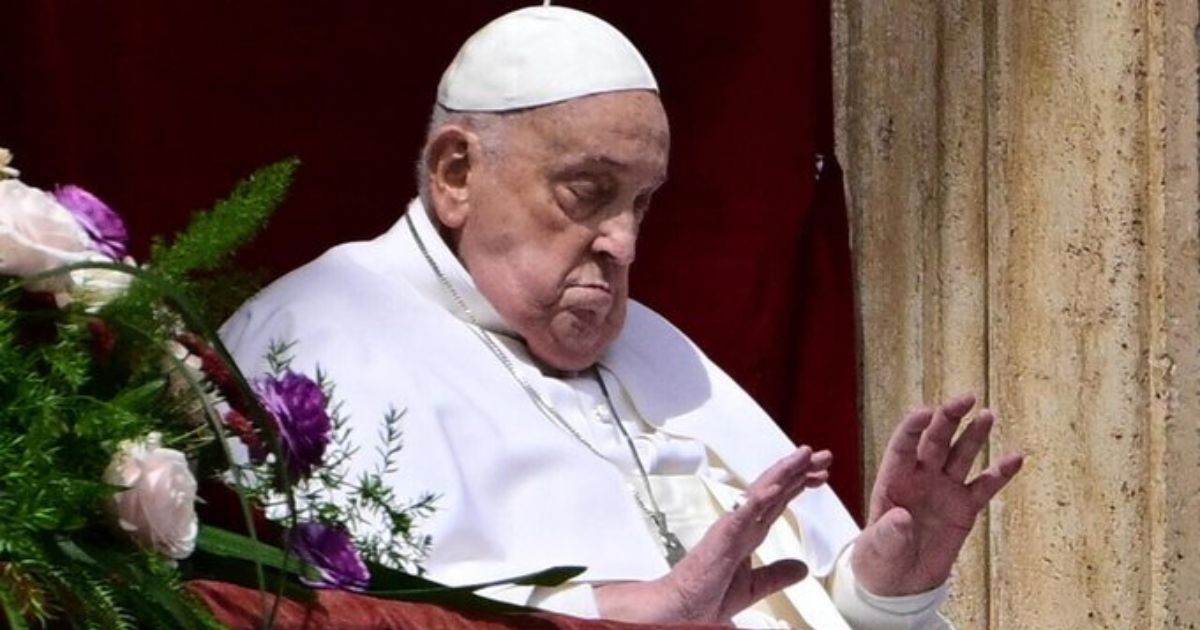Following a “complex” fight with double pneumonia, Pope Francis passed away at the age of 88. After suffering from a bout of bronchitis, an inflammation of the airways that transport air to and from the lungs, the head of the Roman Catholic church was admitted to the Gemelli hospital in Rome.
In a statement, Vatican Camerlengo Cardinal Kevin Ferrell said: “The Bishop of Rome, Francis, returned to the Father’s house this morning at 7:35 a.m. Farrell stated in the statement that he has devoted his entire life to serving the Lord and his Church.
The Pope’s condition deteriorated after he was sent to the hospital on February 14 due to bronchitis. A “complex clinical situation” led the doctors to alter his respiratory tract infection treatment. Then, it was determined that he had double pneumonia.
REST IN PEACE
The Vatican has confirmed that Pope Francis has died after he was recently released from the hospital after complications from pneumonia in both lungs. He was 88. MORE: https://t.co/rq7mjiugkU pic.twitter.com/5Sr3aEJURV— ABC15 Arizona (@abc15) April 21, 2025
What is Double Pneumonia?
Bilateral pneumonia, sometimes referred to as double pneumonia, is a lung infection that affects both lungs at the same time. Infection causes inflammation and fluid or pus to fill the small air sacs (alveoli) in both lungs.
Although not a recognized medical word, it is frequently used to refer to pneumonia that affects both lungs. Because double pneumonia affects a larger portion of the lung, it may result in more severe symptoms.
However, whether one or both lungs are infected, the typical symptoms of pneumonia are the same. According to the NHS, pneumonia symptoms may appear all at once or gradually over a few days.
Here are the 9 symptoms to look out for:
- a cough – you may cough up yellow or green mucus (phlegm)
- shortness of breath
- a high temperature
- chest pain
- an aching body
- feeling very tired
- loss of appetite
- making wheezing noises when you breathe – babies may also make grunting noises
- feeling confused – this is common in older people
Single pneumonia and double pneumonia have the same causes. The same pathogens, such as bacteria, viruses, and fungi, are responsible for both kinds.
Pope Francis Dies Aged 88 After Double Pneumonia Health Battle, Vatican Confirms#TNSHORTS #PopeFrancis #VaticanCity pic.twitter.com/zSDbt3XV8a
— TIMES NOW (@TimesNow) April 21, 2025
Who’s Most at Risk of Double Pneumonia?
Certain people are more susceptible to double pneumonia because of things like age, underlying medical disorders, and compromised immune systems. This is especially true for infants under two and adults over 65, whose immune systems are still developing or deteriorating.
People with chronic conditions like heart failure or lung diseases like cystic fibrosis, asthma, or COPD are also at a higher risk. Additionally, anyone who has a compromised immune system—whether as a result of medicine, disease, or other circumstances—is more vulnerable.
The majority of patients with double pneumonia can recover completely with the right care. Antibiotics are usually recommended to treat the illness if the pneumonia is bacterial in origin. The outcome, however, may vary depending on the severity of the pneumonia, underlying medical issues, and the promptness of therapy.













